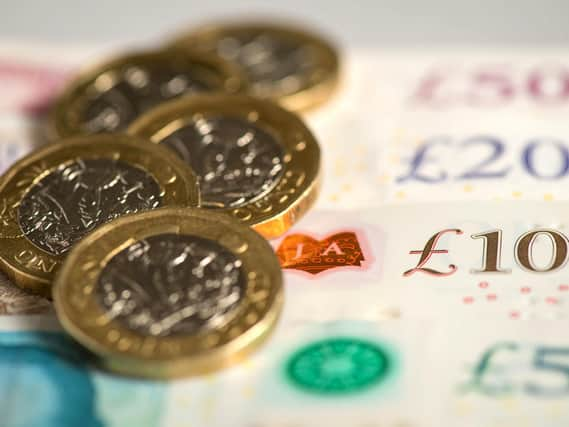Taxation on state pension can be complex maze - Gareth Shaw


Dear Gareth,
I reach state pension age soon and I am planning to give up work altogether when that starts coming in.
How will my tax affairs change? Am I right in thinking that I don’t pay tax on my state pension?
Name and address supplied
Gareth says…
Advertisement
Hide AdAdvertisement
Hide AdThanks to the UK’s rather byzantine ways of applying tax to our income earnings, you could, depending on your situation, be both wrong and right about the taxation of your state pension.
It’s worth getting into the weeds of pensions and tax more broadly. When you save into a private pension, you do so on an ‘exempt, exempt, taxed’ or EET basis. This means that your contributions into a pension get tax relief, and the investments into which your pensions are placed do not get reduced by income tax, dividend tax or capital gains tax.
The government views this lack of taxation as a significant incentive for you to take financial responsibility for your future by saving into a pension. But its generosity only goes so far – although you don’t get taxed when you’re building up your savings, your pension income is subject to income tax.
That is inclusive of the state pension. The state pension is a benefit, which is paid to you without tax deducted (or ‘gross’). However, unlike many other benefits, it is treated as taxable income.
Advertisement
Hide AdAdvertisement
Hide AdThat doesn’t necessarily mean you will pay any income tax. That will depend on the amount of private pension you receive. That’s because we each have a personal tax-free allowance, an amount of money we can earn before we pay any income tax. In the 2021/22 tax year, that is £12,570.
Let’s say you're getting the full amount of the weekly state pension, which is £179.60 per week in the 2021-22 tax year (which started yesterday). That’s the equivalent of £9,339.20 per year. So, if the state pension was your only income in retirement, you would pay no income tax as your pension income was lower than the personal allowance.
Things get a bit more complicated when you have a private pension, or income from any other sources (such as a rental property or part-time work). Your state pension will use up most of your personal allowance. In our scenario above, it means that the first £3,171 of income you get from your private pension can be earned tax free, with anything above a total of £12,570 subject to income tax.
The next £37,700 will be taxed at 20% (meaning your total annual income is £50,000). Income between £50,000 and £150,000 is taxed at 40%, and anything above £150,000 is taxed at 45%.
Advertisement
Hide AdAdvertisement
Hide AdThese are the tax rates for England, Wales and Northern Ireland. Rates in Scotland are slightly different. Income above £12,570 and below £14,667 is taxed at 19%, between £14,667 and £25,296 taxed at 20%, and income between £25,296 and £43,662 is taxed at 21%. The income between £43,662 and £150,000 is taxed at 41% and income above £150,000 is taxed at 46%.
If you have a private pension which you’re collecting, you’ll likely be contacted by HMRC when you start getting your state pension. That’s because it starts collecting any tax you may owe as a result of earning more income through your tax code. Your tax-free allowance, therefore, will reduce to ensure that you’re paying the right amount of tax.
Some new pensioners report getting lots of letters from HM Revenue and Customs (HMRC) about changes to their tax code when they first collect their state pension. This may be because you have income from more than one pension, or your tax code is being calculated based on your income in employment, and the tax office is making adjustments as it gets more information. This all corrects itself eventually, but you can supply more information to HMRC through your personal tax account.
If the state pension is the only income you have, you’ll need to complete a self-assessment tax return.
Advertisement
Hide AdAdvertisement
Hide AdSupport The Yorkshire Post and become a subscriber today. Your subscription will help us to continue to bring quality news to the people of Yorkshire. In return, you'll see fewer ads on site, get free access to our app and receive exclusive members-only offers. Click here to subscribe.